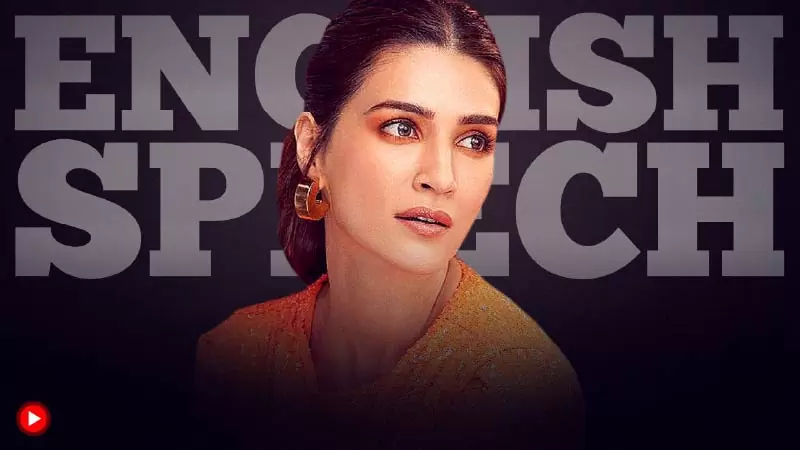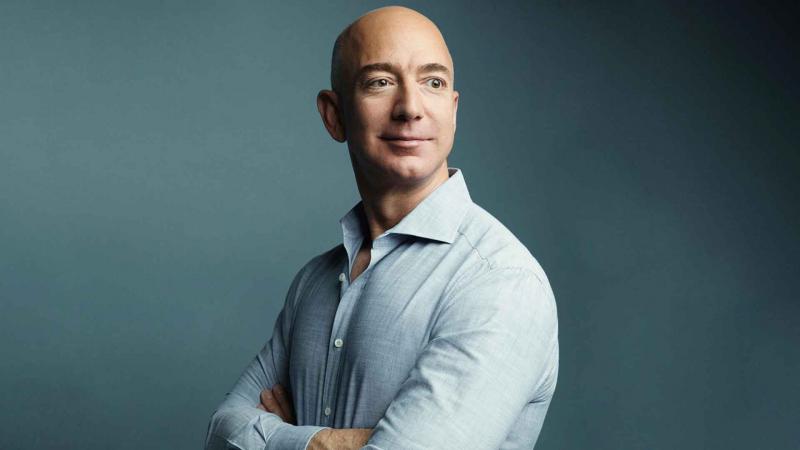Kriti Sanon: Being Sentimental
Learn English with Kriti Sanon’s Speech. Kriti Sanon is an Indian actress who appears mostly in Hindi films. In 2014, she made her acting debut in the Telugu psychological thriller 1: Nenokkadine. The action film Heropanti marked Sanon’s first project in Hindi cinema and earned her the Filmfare Award for Best Female Debut.
Download Full
Download available
for Plus Members
🎯 1000+ English files (PDF, MP3, Lessons)
PDF Transcript
Access the full speech in an
easy-to-read PDF format.
Audio Version
Listen and download clear,
high-quality MP3 recordings.
English Lesson
Includes vocabulary
and grammar practice.
Offer ends in:
01
Days
:
15
Hours
:
29
Mins
:
42
Secs
Offer ended.
Download available
for Plus Members
PDF Transcript
Access the full speech in an
easy-to-read PDF format.
Audio Version
Listen and download clear,
high-quality MP3 recordings.
English Lesson
Includes vocabulary
and grammar practice.
Offer ends in:
Offer ended.
Transcript and Audio Here!
English Speeches creates these files FREE & downloadable, so you can learn English and improve your vocabulary!
Kriti Sanon | Quote
“In the end, we only regret the chances we didn’t take.” Kriti Sanon
Kriti Sanon | FULL TRANSCRIPT:
The move from Delhi to Mumbai, I think, was not planned in my case. Initially, I never thought of becoming an actor. I was always into studies. I was a very, very studious kid. I was into dance, but I never thought that would ever help me in life. I was doing my B.Tech when just randomly some people told me, “You’ve got a great height. I think you should try for modelling.” And my first reaction was like, “I don’t wanna become a model.” And then in my head I thought, why not, you know, I can try. Like, if nothing else, it will just be an experience. I think so many times we shy away from a lot of things because we start thinking about future and how it’s going to help us and how it’ll be useful or not useful. I think sometimes you just need to just go out there and try things. That’s when you realize what you like, what you don’t.
So I started modelling. I started getting a lot of TV commercials. I have never, like, done anything related to acting before that. So I didn’t know whether I could or not. And while I was doing the daily commercials, which don’t require too much of acting, but I felt I enjoyed it. I felt I enjoyed the shooting process. I had the opportunity of working with a few directors like Shoojit Sircar and all, during my TV commercial period, where they sort of encouraged me and they said, you know, you have that acting thing in you. So just explore it. Don’t let it just go and see what you like, see if you like it. And I did and I moved to Mumbai after I completed my B.Tech. I had three job offers in my hand. It was a little hard to convince my parents, but I think they’ve always supported me, which is the reason why I am here today. So yeah, that was my move from Delhi to Mumbai.
I wasn’t like, really… I was starting out and I didn’t have any particular thing in mind that okay, this is how I want to start. I got a great opportunity down South in Telugu opposite Mahesh Babu. And I think, with me, the best things have really come out of the blue suddenly. It’s never been planned. It’s like, I sometimes feel you do choose films, but sometimes the films do choose you. That particular film, they were already shooting with another actor. And then there were some issues and suddenly, they were looking for a newcomer. And it came to me and I grabbed the opportunity and it was a great, great experience.
I think a lot of people keep asking me, what is the difference, you know, between working in Telugu film industry and working in Hindi film industry? Genuinely, I didn’t really find a difference except for the language. Except I can obviously chat a lot more on set when I’m working in Hindi film industry because I connect with the language. And then I had to really use my memory skills that engineering gave me to mug up the dialogues, because I didn’t know the language. But apart from that, I think, both the industries and people working are equally passionate, equally into their job, wanting to make something beautiful, something magical. And in fact, the technicians, I feel, are working all across, you know. Heropanti, the whole cameraman department, the whole DOP department was Telugu. So, I genuinely felt like there was no difference, but thankfully, I did get to experience both the worlds, you know, with their slight differences and similarities. And it really taught me a lot very early in my career. So, I’m glad for that.
I never planned on becoming an actor earlier. I’ve never really gone, done workshops, or done theatre to actually learn. And my learning has more or less been on my job. So, I think I have… through the films that I have done till now, I’ve slowly, slowly tried to find what works for me, what doesn’t work for me. What is my method? What is my process? Initially, I realized that okay, I can’t maybe dig into an emotion that I have experienced at some point in my life and get it here. That’s something I’m sure of. Like, you know, I’ve heard that people sort of, think of something that they’ve gone through, and you know, someone who died in their family and you know, the feeling that they went through, and they start crying there and then. I tried it; it didn’t happen. I used to sometimes fight with my mom in the vanity and I’m in a very bad mood and I come on the set, but I can’t get that back. So I realized that that doesn’t happen with me.
For me, what works more is to be where I am right now as the character, to go back and think what the character has gone through, where the character is coming from, what kind of a person she is, I think when I try and zone myself in all that, it works for me way more. I felt as a person, maybe I am…. Somebody told me there’s a difference between being emotional and being sentimental. When you’re emotional, it’s way deeper, you don’t let go of the feelings too soon. When you’re sentimental, you cry on drop of a hat, you get affected immediately, but you can also sleep over things. You can also move on. I think I’m more sentimental, which is why this, sort of spontaneous and on the spot and feeling it in the moment, kind of works for me more. But again, this is also something I have, sort of, learned through the years.
I think one film that did make me grow a lot, although the film didn’t work, I would say is Raabta. Purely because I think that was the first time I’d really prepared a lot. You know, I had the time to prep for the character. Before that, I didn’t get the time to prep for any character. The character was a little complex, a little layered. I had to sort of… I had someone who was pushing me, Dinu, you know, through like finding myself and breaking the way I think. So, Shahrukh sir also once told me that there’s no right way of doing a scene. There can be many ways. It’s what you look at it, how you choose.
So, I think I’ve, over the time, started thinking differently when I approach a scene. There is always one direct way of approaching it, which is the most obvious way. But then, as an actor, you also want to do something exciting and something different in it. So you keep thinking constantly and find, okay, how else can I say this which is not very generic. I think I try and find that in every scene. So yeah, so far that’s been what I know of my process. I hope I figure out more.
Kriti Sanon






